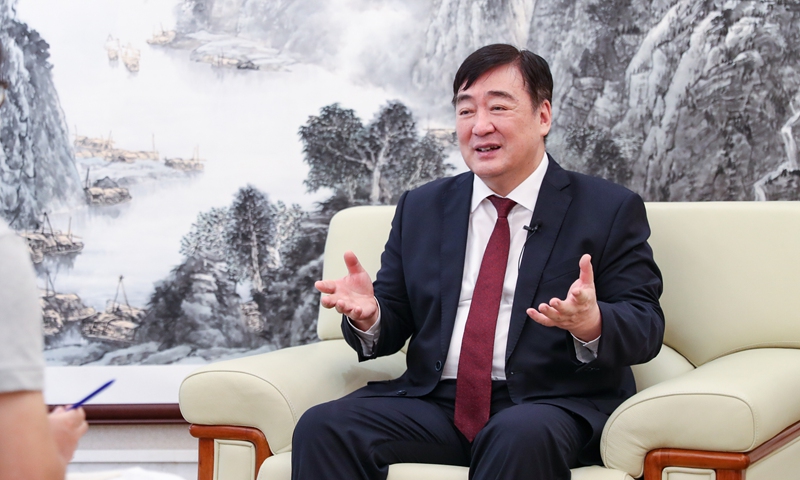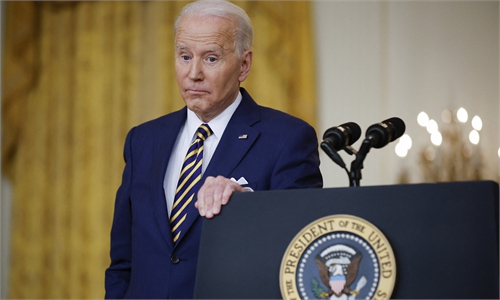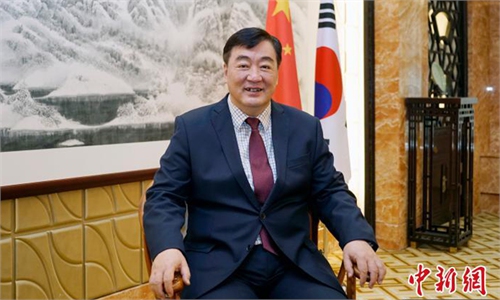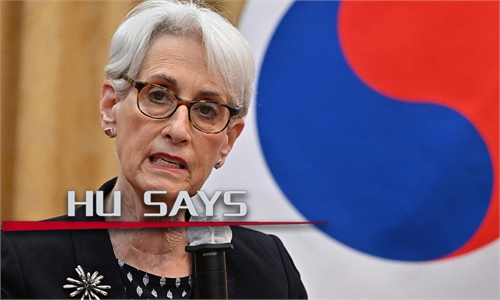Chinese ambassador to S.Korea calls for dialogue over Peninsula issue, criticizes US for hindering unity of UN Security Council

Chinese Ambassador to South Korea Xing Haiming. Photo: Xinhua
China has been acting as a responsible permanent member of the UN Security Council to mitigate the tensions on the Korean Peninsula, calling for relevant parties to return to dialogue, Chinese Ambassador to South Korea Xing Haiming said, criticizing the US' action of unilaterally pushing a resolution on further sanctions against North Korea at the UN Security Council.
Xing made the remarks during a television interview with Chosun News on Thursday, where he reiterated that a political solution to the Peninsula issue conforms to relevant parties' interests and China has been trying to mitigate the current tensions in its own way.
China and Russia vetoed a US-backed resolution which advocated for further sanctions against North Korea on May 26, and defended the decision at a Wednesday General Assembly of the UN.
During the interview, Xing reiterated China's stance over the topic. China opposes any party to escalate the situation and calls for relevant parties to cooperate to realize denuclearization of the peninsula, Xing said.
In the past, China and the US communicated in advance and reached a consensus before bringing a resolution to the council for voting. But the US did not have full communication with China and unilaterally pushed the resolution, which is not conducive to maintaining the unity and authority of the Security Council, Xing said.
The Security Council's North Korea-related resolutions are a whole and should be implemented comprehensively, completely and accurately. In addition to clauses of sanctions enforcement, the resolutions also contain clauses about sanctions mitigation. Blindly adding sanctions will not help solve the problem and it's inhumane, said the ambassador, noting dialogue is the only feasible way.
China, South Korea, the US and Japan should work together on the topic rather than use it to form political opposition and camp confrontations, which will only complicate the peninsula issue, Xing said.
China respects South Korea's traditional alliance with the US, and is happy to see regional countries develop bilateral and multilateral relations based on friendly cooperation, but only if such relations do not target China, Xing said, stressing that "the Asia-Pacific should be a high ground for peaceful development, not a geopolitical arena."
On the THAAD issue, the most sensitive topic in China-South Korea relations, Xing said China understands South Korea's security demand but South Korea should also understand China's concerns.
Bilateral relations went sour in past years due to THAAD; mutual trust between China and South Korea were damaged and people's feelings deteriorated, which inevitably had an impact on exchanges and cooperation in various fields.
Xing said the lessons from the past must be learned and the two sides should properly manage the topic and avoid making it a prominent point or impacting the hard-won friendliness in bilateral relations.
Global Times



